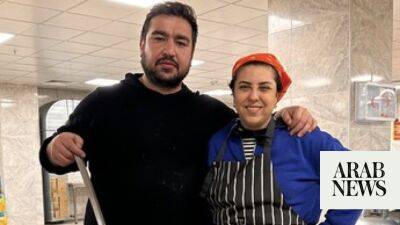How can cultural sites be saved after the Türkiye-Syria earthquakes?
When an earthquake strikes, the priority for rescue teams is to save as many lives as possible.
But there is also the need to preserve historical heritage. And the way in which ancient buildings survive can also provide many lessons as authorities look to rebuild.
According to many international experts, ancient historical buildings have shown a surprising capacity to withstand the devastating earthquakes on 6 February, far exceeding the modern constructions built in Türkiye in the last three decades.
The Antakya-Aleppo area has suffered hundreds of extremely intense quakes even worse than the recent one
Dr. Emanuela Guidoboni, an Italian historian of seismology, formerly Senior Scientist at the Italian National Institute of Seismology and Volcanology, said: "even the Romans had knowledge of the strong seismicity of the Anatolian and Syrian area - currently known as the Dead Sea and the Anatolian faults".
“That’s the reason why they used to build constructions with higher anti-seismic standards in Anatolia and Syria than in the Italian area. These techniques have ben highlighted by the archeologists” Dr. Guidoboni told Euronews Culture.
An example is the Roman-Byzantine fortress of Gaziantep, which is in the heart of the earthquake zone.
There is no precise confirmation about the degree of destruction suffered by the Roman-Byzantine fortress of Gaziantep. Yet despite the damages suffered, the 2,000-year-old military citadel has not been completely razed by the quake.
The UN's Cultural agency, UNESCO, cannot confirm the reports concerning the Gaziantep Castle since “it is not listed among our heritage, so we don’t have any further information about the level of its destruction” explained a spokesperson for the organisation.
The






